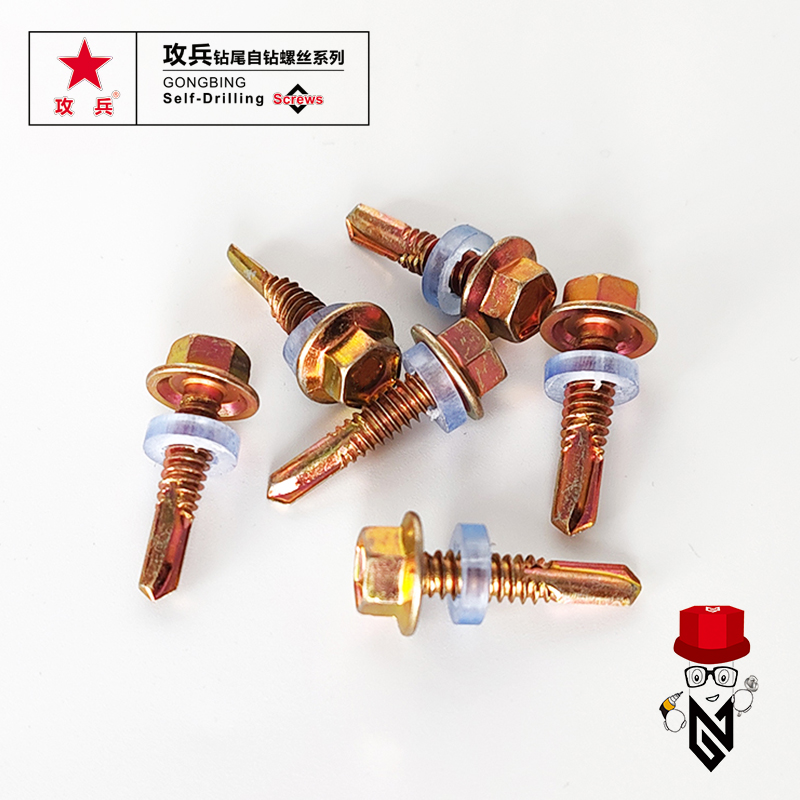what are chemical anchors
What Are Chemical Anchors?
Chemical anchors are specialized fastening systems that provide secure attachment points for various construction and engineering applications. These anchors are particularly valuable in situations where traditional mechanical fasteners, such as bolts or screws, may not offer adequate stability or strength. Utilizing a combination of a resin and hardener, chemical anchors ensure strong bonding to concrete, masonry, and other substrates, making them an essential component in modern construction practices.
The Composition of Chemical Anchors
Chemical anchors typically consist of two main components a resin and a hardener. When these two elements are mixed, they undergo a chemical reaction that results in an adhesive bond. The most commonly used resins include epoxy, polyester, and vinylester. The choice of resin depends on the specific requirements of the project, such as environmental conditions, load-bearing capacity, and curing time. Epoxy resins, for instance, are renowned for their strength and durability, while polyester resins may provide faster curing times but may not perform as well under extreme conditions.
Applications of Chemical Anchors
Chemical anchors are versatile and can be used in a variety of applications across different sectors. Some of the most common uses include
1. Construction In the construction industry, chemical anchors are used to secure steel beams, handrails, and other structural elements to concrete or masonry surfaces. They provide the necessary strength to support heavy loads and ensure the structural integrity of buildings.
2. Renovation and Repair For retrofitting or repairing existing structures, chemical anchors can be an optimal solution. They allow for the installation of new fixtures or the reinforcement of weakened areas without the need for extensive demolition.
3. Infrastructure Chemical anchors are widely used in infrastructure projects such as bridges, tunnels, and roadways. Their ability to withstand dynamic loads and environmental stresses makes them suitable for critical applications in civil engineering.
what are chemical anchors

Advantages of Chemical Anchors
The use of chemical anchors comes with several advantages
- High Load Capacity Chemical anchors can handle significant loads, making them ideal for heavy-duty applications. - Resistance to Environmental Factors Many chemical anchors are formulated to resist moisture, chemicals, and temperature variations, ensuring long-term durability in challenging conditions. - Versatile Application They can be used in various materials, including concrete, brick, and stone, making them suitable for diverse construction needs. - Reduced Risk of Cracking Unlike traditional mechanical anchors that can create stress points in substrates, chemical anchors distribute loads more evenly, reducing the risk of cracking or failure.
Installation Process
The installation of chemical anchors involves several steps to ensure maximum effectiveness
1. Drilling A hole is drilled into the substrate using a rotary hammer or drill. The hole's diameter and depth should align with the specifications of the anchor. 2. Cleaning The drilled hole must be thoroughly cleaned to remove any dust or debris that could hinder the bonding process. 3. Mixing The resin and hardener are mixed according to the manufacturer's instructions. Proper mixing is crucial for achieving the desired strength. 4. Injecting The mixed adhesive is injected into the hole, filling it adequately to create a strong bond when cured. 5. Setting the Anchor The anchor rebar or bolt is inserted into the hole while the adhesive is still wet, ensuring it is surrounded by the resin. 6. Curing The adhesive needs time to cure, during which the anchor reaches its full load-bearing capacity.
Conclusion
Chemical anchors play a vital role in modern construction and engineering, offering a reliable and effective solution for securing components in a variety of applications. Their strength, versatility, and resistance to environmental challenges make them indispensable in both new builds and renovations. Understanding chemical anchors and their proper installation is essential for engineers and construction professionals aiming to enhance the safety and durability of their projects.
-
Weatherproof Plastic Expansion Anchors for OutdoorNewsJun.06,2025
-
Sustainability in the Supply Chain: Eco-Friendly TEK Screws ProductionNewsJun.06,2025
-
Load-Bearing Capacity of External Insulation FixingsNewsJun.06,2025
-
Double Head Bolts: Enhancing Efficiency in Industrial MachineryNewsJun.06,2025
-
Corrosion Resistance in Chipboard Screws: Coatings for Wholesale DurabilityNewsJun.06,2025
-
Butterfly Toggle Bolts : Enhancing Structural ResilienceNewsJun.06,2025
